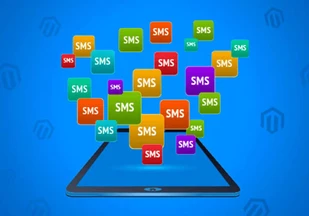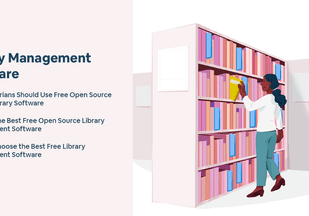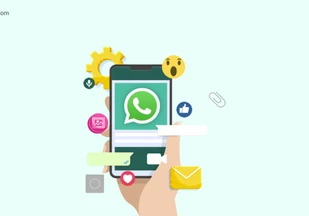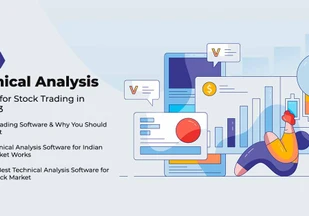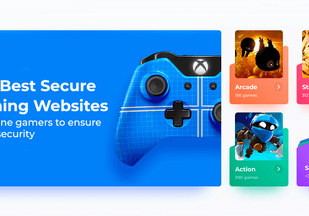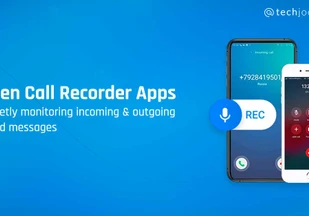Customers are the backbone of any business. Without customers, there is no demand, no sale, and no business. If we look at business with the perspective of customer relationship management (CRM), there are three stages to it; customer acquisition, customer engagement and customer retention.
According to Forrester, marketers focus on gaining new customers while not paying attention on customer retention. One of the mistakes that businesses often make is to assume that if they offer good products or services, customer would continue to be loyal to their brand.
Let’s look at the reasons at why consumers leave a brand and move to a different one.
- Offers
- Quality of Products/Services
- Brand Name
- Popularity
- Returns and Replacement Policy
- Customer Care and Support
Client Acquisition Vs Customer Retention: Which Strategy Works Better
Let’s look at the two scenarios:
Scenario 1: You focus solely on new customer acquisition by spending all your time and money on branding, advertisement, pitching and conversions without thinking about retention.
Scenario 2: After a new customer has been acquired take care of a customer post sales, by sending them loyalty offers and messages under an organised customer loyalty program.
Which one of the two seems easier and which one ensures a regular sales flow?
The easiest and more efficient way of the two is obviously to acquire a customer and improve customer retention. Customers who are already aware of the products and services of a business, could easily be retained by offering them customer loyalty program.
Now let’s look at this analysis:


According to this chart, existing customers are five times (87%) more likely to purchase from the same brand again, and four times (79%) more likely to recommend the brand to their family and friends.
Hence, businesses need to come up with strategies to retain their valuable customers and create a robust consumer base to earn more profits.
Customer Retention Strategies: 6 Best Examples on How to Build Customer Loyalty
Here are 6 cases where brands employed customer retention strategies and saw a massive transformation in their sales and overall brand recognition:
Tesco


Tesco used mass-mailing as one of the customer retention strategies for marketing when they started. But after a year, they faced issues such as bounced emails and invalid addresses. Meanwhile, its customer loyalty program also failed, projecting a decline in shoppers.
Tesco wanted to understand the mind of their customers and figure out ways to be a priority brand in their purchase choices. Hence, they used data from researchers focusing on customer satisfaction. By understanding market trends, consumer behaviour and combining it with the data from their club card, they learned how to put the customer into the centre of their decisions.
Tesco started to look at how they catered to the expectations if customers with personalised offers. In addition, they have been able to understand their purchasing behaviour, helping them offer deals that customers would prefer.
Apple


Over the years, Apple has garnered a loyal consumer-base across the globe. In fact, according to a study conducted by simonlycontracts.co.uk, 59% of the 2,275 iPhone users admitted to purchase iPhone because of “blind loyalty”.
But what is the reason for this blind loyalty? The key lies in making a brand identity which can be relatable for users. Steve Jobs always believed to make the brand a statement in itself. With its innovative periodic updates that evolve with time, to its simple yet elegant design; apple ensures every product is created to resonate with the consumers.
Suggested Read: Text Messaging for Customer Retention: Everything You Need to Know
Amazon


Amazon began its journey from Jeff Bezos’s garage at Washington as an online bookstore and has now become one of the leading ecommerce platforms across the globe. What makes its consumer base loyal is more prominent, due to its premium customer loyalty program, Amazon Prime.
According to a study by LoyaltyLion, Amazon Prime members, on an average, spend more than four times than regular Amazon shoppers.
But Amazon goes a step further than Costco and provides more perks than any other ecommerce platform, which includes Amazon Prime Video streaming service, express delivery, and no delivery charges.
This makes customers feel that they’re getting more than what they signed up for and remain loyal to the brand.
Coca Cola


For generations, Cola Cola has been home to a loyal customer-base and with each generation it gains more. One of the most striking features of the brand is its ad campaigns with tough the heart of millions.
With taglines such as ‘Happiness is to Share’ people of all ages remember its ads. Coca Cola engages masses with their heart-warming messages to make the world a better place.
For instance, presently, the “Share a Coke” online and offline campaign encourages communities to come together. This gives the brand a humane personality that is loved by all. This brings customers back, again and again.
Starbucks


If we talk about a brand whose foundation was laid on customer loyalty, Starbucks is the ideal example. Starbucks started their first coffee shop in 1971, but what transpired to make the brand a public favourite?
In 1982, Howard Shultz, was hired as the head of marketing and he observed that often customers felt uncomfortable due to their lack of knowledge about coffees. Therefore, he developed a customer-friendly strategy that made it easy for customers to understand the products with the help of brochures. This made them come to the store again and again.
However, the company’s founders Baldwin and Bowker wanted the establishment to be nothing more than a coffee machine seller. So, Schultz left the organisation and came up with a new coffee chain.
The tables turned when in March 1987, Baldwin and Bowker declared their plan to sell Starbucks, which was quickly bought by Schultz. He merged his own coffee chain with it and with time, Starbucks came to be known as the largest café chain in the world. All of this wouldn’t have been possible if Schultz hadn’t put customers before the company’s functions.
Today, Starbucks is gaining more popularity as its new chains are opening worldwide. Their key focus still lies on customer engagement, experience and connect. With ‘My Starbucks Rewards’, their customer loyalty program, ‘purchasing coffee and adding loyalty points to get prizes’ became easy.
Toyota


According to an Experian Automotive report, Toyota has the most loyal buyers compared to other global players. The reason lies in their impeccable delivery, and their on-time approach. Toyota is committed to provide their consumers superior quality vehicles consistently. This rings well with its consumer base, who turn to Toyota, whenever they wish to get a new vehicle.
But Toyota had to overcome a brief hurdle of losing customers after negative-perception issues. They did it by focusing on their customer experience and cost-effective prices, without compromising on quality. Taking consumer requirements into consideration, they maintained their objectives and prioritising their faithful customer base.
The Art of Customer Loyalty: Smart Tips for Better Customer Retention in 2024
If we summarise each of the six aforementioned cases, we get these tips on how to retain customers.
Tip 1: Personalised Offers (Tesco)
Like Tesco, if businesses understand the behaviour of their consumers, they will be able to convince their customers to come again and again. For instance, if consumers buy cereals and milk together, a combination offer providing discounts would encourage customers to return.
Tip 2: Customised Products (Apple)
Taking the example of Apple, if you design and deliver products based on the consumer’s desires and package it with personalised touch, those are most likely to be a success.
Tip 3: Value adds (Amazon)
By providing value additions such as express delivery for asking people to join the customer loyalty program, you are likely to build customer loyalty in the long term.
Tip 4: Offline and Online Campaigns (Coca Cola)
With the help of offline and online campaigns and ads, you can create lasting impression on consumers. Ad stories that help connect with your customers, so that they choose the brand they’re attached to.
Tip 5: Purchase Experience (Starbucks)
Starbucks ensured that customers can easily choose and buy the products of their choice. In addition, they also provide loyalty points that can be redeemed for gifts as a part of the customer loyalty program. With the help of the Starbucks app, they can easily order products of their choice and also check their total loyalty points.
Tip 6: Quality and Price (Toyota)
One of the most basic business tips; Toyota focussed on providing quality products at cost-effective prices. People will stay loyal if you provide good quality products and services at competitive prices.
Tip 7: Social Media Engagement
After making a sale, social media platforms can be a great tool to communicate with the customer. Today, customers often tweet or post about their experiences with a brand. Acknowledging and addressing their feedback creates a positive impact not just with the specific customer, but also the people who are following the interaction.
Tip 8: Prompt Service
All popular brands have a reputation to maintain. Therefore, they are prompt in responding to queries and concerns of customers to improve client retention. As they say, opportunity delayed is opportunity missed. This holds true for businesses. Hence, if a customer doesn’t get a response from the company, they will quickly move to the next best alternative.
Tip 9: Calendar
Many big companies such as TGI Fridays and Titan, make sure to wish their customers on special occasions such as birthdays, anniversaries and festivals. While wishing them the best, they also offer personalised discounts to celebrate the occasion. Therefore, maintaining a calendar can work wonders to improve customer retention.
Tip 10: Gratitude
A word and a token of thanks go a long way in earning loyal customers. After customers have made a purchase, offer them a discount or a promise of a free gift on their next purchase. This not only makes customers happy but also think about how to use the discount coupon or free gift. This makes them come back again.
From Client Acquisition to Retention: How CRM Software Helps
All the tips individually sound like a lot of work. However, each of them can easily be implemented with the help of a customer relationship management software. From assisting in sending promotional mailers to managing ad campaigns; a CRM software is an ideal solution for all tasks related to customer relationship management.
The main main objective of a CRM Software is to help in client acquisition and retention. All of this has to be done while minimising acquisition costs.
Here are some ways how a CRM Software helps in both of these processes:
1. Automation: CRM Software helps in automating various processes such as business-client communication.This helps in offering quick responses to the queries and concerns of various customers at once thereby not losing them.
2. Data Storage and Retrieval: With the help of CRM software, data of customers can easily be retrieved. The data helps in looking at their purchase history to suggest products that they would prefer.
3. Targeted Offers and Promotions: With the Help of CRM software, businesses can send promotional literature and media to potential customers who might be interested in specific products. This is determined by their age group, gender, location and various other factors.Targeted advertisements work as an efficient customer acquisition strategy.
4. Campaign Management: CRM Software solutions help in managing social media campaigns and converting leads into new customers.
5. Customer Feedback: CRM Software helps in gathering information from surveys and feedback forms filled by customers, so that they can work on specific requirements for customer retention.
Conclusion
To conclude, reiterating the necessity of retaining a customer is far more important. A loyal customer will not only keep on purchasing things from you, but will also recommend you to other customers, thereby bringing new customers. But most importantly it is about creating your business story that your customers carry with themselves. Therefore, as Seth Godin said, “Marketing is no longer about the stuff that you make, but about the stories that you tell.”













